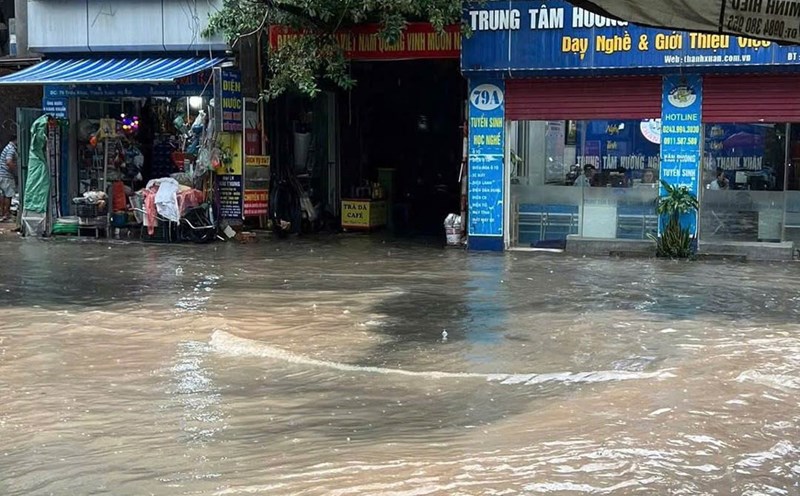At the Workshop "Safe in the operation of urban railways" organized by the College of Railway on April 17, Mr. Shiro Hagimori, East Japan Railway Company (JR East) said: Japan has had serious accidents on high-speed railways such as the Mikawashima (1962) and Fukuchiyama (2005).
Although the number of major accidents has decreased significantly in recent years, incidents such as derailments, collisions or fires still occur due to operational errors, equipment or natural disaster impacts, said Mr. Shiro Hagimori.
Mr. Shiro Hagimori also said that as Japan's largest railway enterprise, JR East operates more than 12,000 trains per day, serving more than 16 million passengers.
From practical experience, Mr. Shiro Hagimori believes that railway accidents are often not caused by one cause, so implementing only one response will not be effective and can easily recur. Therefore, this company always approaches the 4M framework (people, machinery, environment and management). This approach allows for proactive and comprehensive risk assessment and control, especially for rare accidents that can have serious consequences.
Dr. Truong Trong Vuong - Principal of the College of Railway said that urban railways have their own characteristics and are different from the existing national railway system. Urban railways always operate with high frequency, large transportation volumes; are electrified and have separate infrastructure (such as overpasses, underground tunnels). Therefore, experience in incident handling and accident and risk prevention in the urban railway sector in Vietnam still faces many limitations.
Dr. Truong Trong Vuong emphasized that this Workshop on "Safe in urban railway operation" is an opportunity for authorities as well as experts to directly access the experience and model of "Safe in urban railway operation" of a country with a long history of development and success in the urban railway sector like Japan.
According to information from the Railway College, the seminar on "Safety in urban railway operation" this time is one of the activities within the framework of the technical cooperation project "Enhancing the urban railway training capacity for the Railway College" by the International Cooperation Agency of Japan (JICA) in collaboration with the Ministry of Transport - Transport (now the Ministry of Construction) deployed from January 2022 to January 26.
The project comes from the urgent need for high quality human resources for urban railways currently being implemented in Hanoi and Ho Chi Minh City. Ho Chi Minh. In fact, Vietnam is still lacking in a well -trained training program and a team of expertise in areas such as urban railway operation and maintenance techniques. The project aims to build an in -depth training program, update the curriculum in accordance with advanced technology, and at the same time improve the capacity of lecturers through domestic and foreign training courses. In addition, one of the key contents of the project is to convey international experience on ensuring the safety of urban ship operation.
Since its launch, experts from the Japan International Cooperation Agency (JICA) have organized many training courses to transfer knowledge and techniques to more than 50 staff and lecturers of the Railway College, including majors such as safety, locomotives, architectural works, station management, train drivers, etc. In addition, more than 30 Vietnamese staff and lecturers have been sent to Japan to participate in training courses, visit and exchange experiences at stations, dispatch centers, maintenance facilities and training centers of railway operator enterprises such as Tokyo Metro and JR East.










